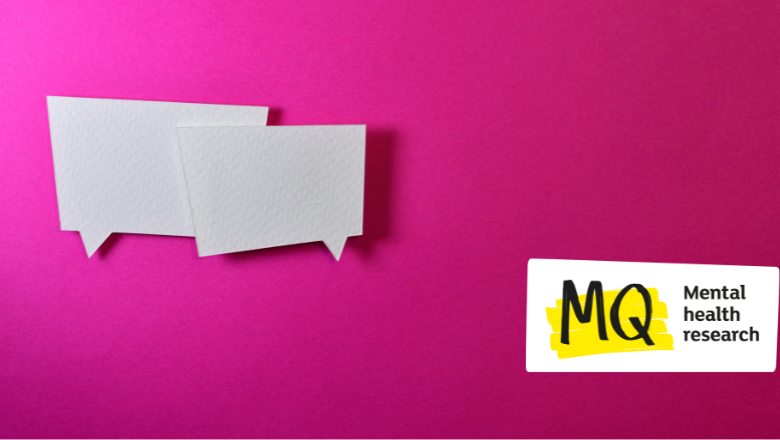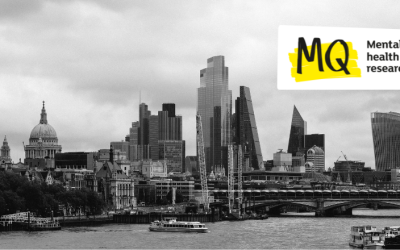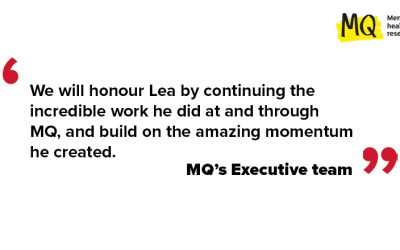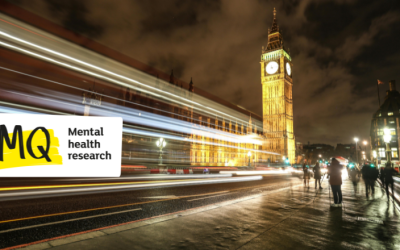Ahead of Time To Talk Day (1st February 2024), we take a look at how language and mental health are linked. Language around mental health is, let’s face it, clunky at best. How do we accurately communicate our experience of our body and mind to another human being? It may seem an impossible task at times, particularly with words regarding mental health.
Language as power
I am a massive language nerd. I love learning about etymology, how words evolve through the history of their use, the invention of new words and the shifts in changes of use. While generally I don’t agree with people policing the use of language, it can be empowering to understand the connotations and impact of the words we use, when it comes to mental health especially.
Words can be hugely powerful. For example, when we use swear words, our threshold for physical pain increases. So when we hurt ourselves, perhaps with something simple like a papercut, we might naturally swear as an instinctive response. This instinct actually helps with pain relief.
Did you know we laugh more at certain words and sounds that make our mouths form the shape of a smile anyway? Words that make us sound out vowels like “ee” do the same, e.g. the word "happy" or saying “cheese” when posing for a smiley photo. Whereas vowel sounds with “oo” affect our mood more negatively.
The Communication Game
How we describe things also has a lot of power. To express to each other what we see, hear, think and feel is like playing a game of Articulate, the party game where you try to describe to your teammates one word without using any part of that word. Communication is a constant guessing game throwing back and forth explanations and descriptions of experiences.
Just like when you’re in an argument with a loved one, both trying to get the other to understand your point of view and why this matters to you; describing mental health experiences can be incredibly difficult. Sometimes, understanding what someone means when talking about their mental health can be a bit of a guessing game.
Art therapy can help those with mental illnesses for this very reason, it goes beyond language. My therapist and I have found it hugely beneficial for me to draw about an experience or a feeling in my body rather than talk about it. For someone who is a writer for a living, the relief of not using words helps me stop intellectualising and allow other, deeper parts of me to speak. What they have to say can be hugely helpful to unlocking my past and helping personal development.
Find out more about how art can help your mental health and well-being, read our article on the art of destressing.
Terminating Terminology?
Even in the mental health community, certain words feel clumsy to use. We refer to certain conditions as ‘acute’ or ‘severe’ which might refer to their symptom length or intensity rather than the personal experience or hidden life-threatening repercussions of the behaviours associated with the condition, such as the physical effects of eating disorders.
Similarly, the mental health community and medical community might refer to ‘common’ mental health conditions or ‘more commonly diagnosed’ conditions. This doesn’t mean these conditions are popular or trendy, neither does it indicate it’s a common experience in general for humans to have and it certainly doesn’t mean someone need feel their experience is dismissed. Just because depression or anxiety disorder are more common doesn’t mean the pain and suffering caused to the individual by their condition means less or matters less. Pain is pain.
Whether we speak about mental health conditions as mental health struggles, problems, illnesses, conditions or issues, the intention matters just as much as the phrasing. So while certain language is encouraged and other language might be discouraged, checking in with the person you’re talking with is key when it comes to using language about mental health sensitively and productively. Collaboration is key.
Anxious and Sensitive
At a recent NHS mental health assessment, I was described by a professional as ‘an anxious person’, which felt strange. I have anxiety disorder, that has been diagnosed. I experience anxiety attacks and panic attacks. But does that make me as a person anxious? Who I am is not my mental health conditions. The description felt like it didn’t sit quite right with me.
Another word that’s been used to describe me is ‘sensitive’. This seems to link to my mental health experiences. Stress is a common problem for many people and while stress is not a mental illness it can cause one or be the symptom of one. Stress affects me differently to other people, for example. Food also affects me differently, I have a more sensitive response to foods. I have sensitive skin, regularly experiencing rashes or skin conditions at times of stress. And I often fall unwell when under stress also.
However, the word ‘sensitive’ has been used negatively towards me. “Don’t be so sensitive” is often used when I’m standing up for my rights as someone living with mental illness or pointing out stigma or discrimination in treatment, belittling behaviours or, in fact, in people’s use of language.
Discrimination of Downplaying and Dismissing
It matters how we use language when it comes to mental health in many ways, not just in discrimination, isolation or self-esteem, but also in changing the understanding someone might have about a condition.
You might have heard someone make a common throwaway comment that uses medical terminology linked to mental health, such as describing themselves as being ‘a bit OCD’ just because they like things neat. This common misconception has power. Why does it matter? Well, comments like these might mean someone experiencing the distressing symptoms of Obsessive Compulsive Disorder, such as intrusive thoughts or ritualistic behaviour, might not realise they have a mental health condition. They might therefore not seek help from a doctor. They might continue to experience life-inhibiting and distressing symptoms that might continue to get worse.
Using medical language dilutes the meaning and intention of those words, adding to the stigma and misconceptions surrounding mental illness. Misusing the language of mental health is therefore discrimination.
In the case of severe mental illnesses (SMIs) like schizophrenia or psychosis, language can be impactful to the person experiencing symptoms of these conditions and can even exacerbate those symptoms. People with these conditions, for example, may experience hallucinations that those around them do not experience. The people around them might choose to say these hallucinations “aren’t there” but to the person experiencing them, they are. This might for the individual feel alienating, isolating and may exacerbate their anxiety.
In my past, I had audible, visual and tactile hallucinations and, in my experience, when I was told what I was seeing, hearing or feelings “wasn’t there” I felt baffled, terrified and paranoid that I was being lied to. I could in fact see and hear these things, so to be told so firmly what was true was not in line with my experience, how could I judge what was real or not? Were my own senses lying to me or were these people around me? If my own experience is one thing but those around me are telling me my experience is invalid, not only is it disempowering it’s also confounding and very frightening. The stress of this made my symptoms worse, my hallucinations got more intense and all-encompassing, and I needed a lot of medical help to calm those symptoms down.
These experiences were some of the most viscerally extreme and terrifying of my life and I would not wish them upon anyone else, particularly without compassionate people using understanding language around them.
Symptomatic Diagnosis
Describing symptoms is currently the most usual way to get diagnosed with a mental health condition. While we are moving towards a time when, thanks to research, some mental health conditions can be diagnosed using blood tests rather than describing symptoms, diagnoses will continue to be complicated.
“Diagnosis in Psychiatry is not made based on tests, blood tests or even scans. They’re based on a collection of symptoms. Unfortunately, that often means the diagnoses we make are not necessarily reliable. By that, I don’t necessarily mean what we’re telling patients is wrong or not helpful. But the label we give might be different depending on which psychiatrist we are.” Dr Maxime Taquet, MQ Researcher
The label of a condition can be both helpful and hindering. It can be helpful if it’s the correct diagnosis which can then unlock the most helpful treatment, new language to communicate experiences effectively and even help a person ask for reasonable adjustments at work or find others with more similar experiences to themselves so they can feel less alone and more empowered. However if a person becomes defined by their label and not seen as the unique individual they are, this can become unhelpful and limiting.
It's only thanks to research we can move towards a time when all mental health diagnoses are scientifically valid and secure, because without research it’s just guesswork. That is why MQ Mental Health thank you for supporting us.
MQ Ambassador James Downs speaks about his experience of language and mental health in our video for Time To Talk Day. Click the video below to watch now.



